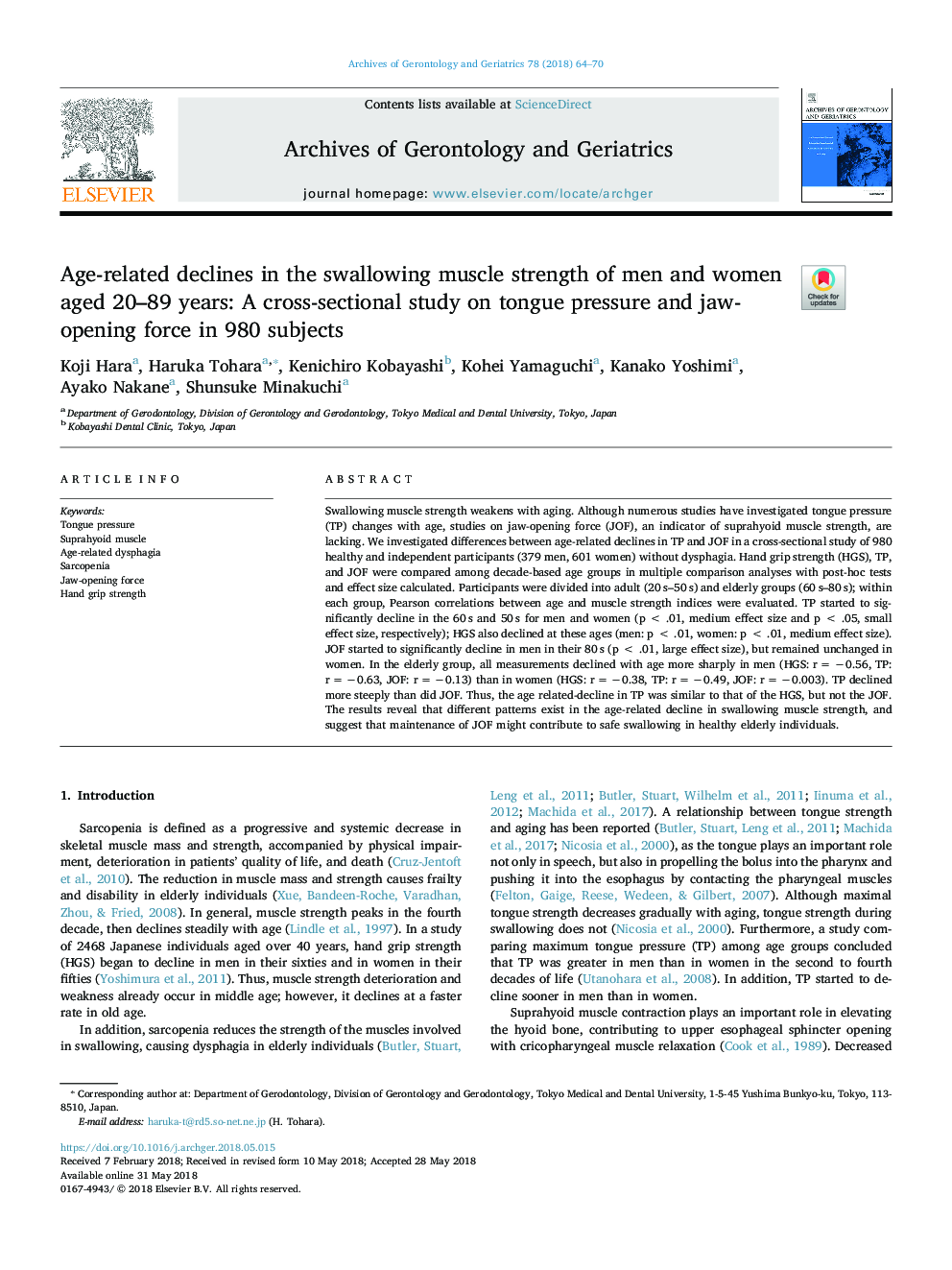| Article ID | Journal | Published Year | Pages | File Type |
|---|---|---|---|---|
| 8257370 | Archives of Gerontology and Geriatrics | 2018 | 7 Pages |
Abstract
Swallowing muscle strength weakens with aging. Although numerous studies have investigated tongue pressure (TP) changes with age, studies on jaw-opening force (JOF), an indicator of suprahyoid muscle strength, are lacking. We investigated differences between age-related declines in TP and JOF in a cross-sectional study of 980 healthy and independent participants (379 men, 601 women) without dysphagia. Hand grip strength (HGS), TP, and JOF were compared among decade-based age groups in multiple comparison analyses with post-hoc tests and effect size calculated. Participants were divided into adult (20â¯s-50â¯s) and elderly groups (60â¯s-80â¯s); within each group, Pearson correlations between age and muscle strength indices were evaluated. TP started to significantly decline in the 60â¯s and 50â¯s for men and women (pâ¯<â¯.01, medium effect size and pâ¯<â¯.05, small effect size, respectively); HGS also declined at these ages (men: pâ¯<â¯.01, women: pâ¯<â¯.01, medium effect size). JOF started to significantly decline in men in their 80â¯s (pâ¯<â¯.01, large effect size), but remained unchanged in women. In the elderly group, all measurements declined with age more sharply in men (HGS: râ¯=â¯â0.56, TP: râ¯=â¯â0.63, JOF: râ¯=â¯â0.13) than in women (HGS: râ¯=â¯â0.38, TP: râ¯=â¯â0.49, JOF: râ¯=â¯â0.003). TP declined more steeply than did JOF. Thus, the age related-decline in TP was similar to that of the HGS, but not the JOF. The results reveal that different patterns exist in the age-related decline in swallowing muscle strength, and suggest that maintenance of JOF might contribute to safe swallowing in healthy elderly individuals.
Related Topics
Life Sciences
Biochemistry, Genetics and Molecular Biology
Ageing
Authors
Koji Hara, Haruka Tohara, Kenichiro Kobayashi, Kohei Yamaguchi, Kanako Yoshimi, Ayako Nakane, Shunsuke Minakuchi,
